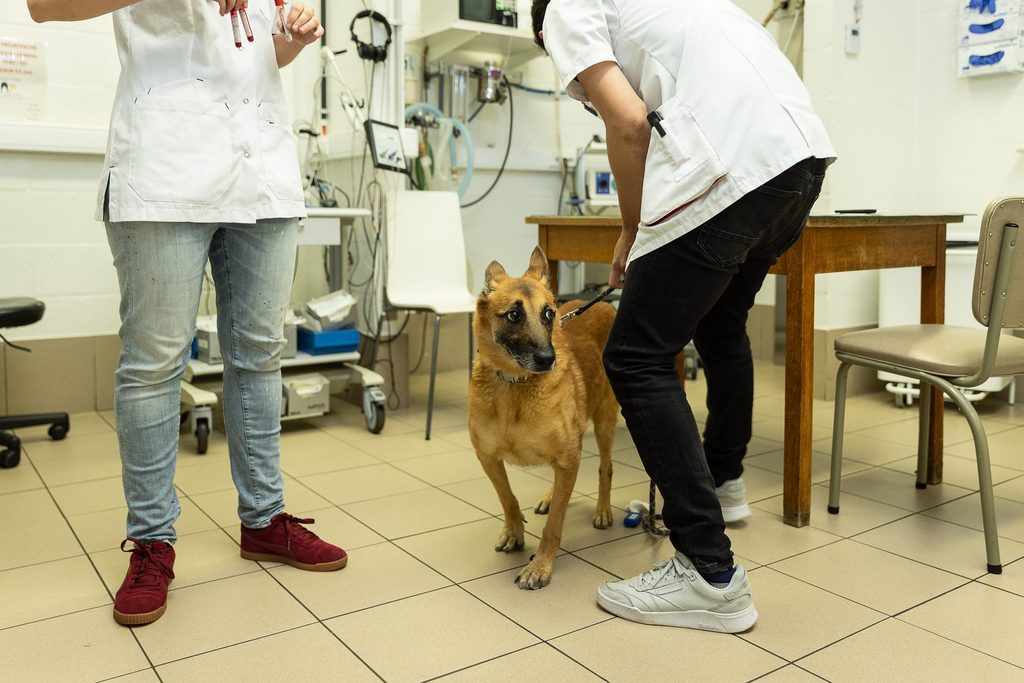Following multiple calls from the animal rights group Gaia for a VAT reduction on veterinary care, a new proposal has now been tabled by French-speaking Socialist Party (PS).
Gaia wrote to all the ministers of the Federal Government at the start of this month, asking them to reduce the VAT for all veterinary care costs and pet food purchases from 21% to 6%. The group argued that it's not logical for VAT to be at 21% for these products and services, as they are not a luxury.
"Caring for and feeding your pet is an essential need, and one that generates significant costs for pet owners," the group stressed. Gaia has argued that the call for a reduced VAT rate is a "legitimate question," as more and more Belgian families are in financial difficulty due to inflation and the resulting rise in energy and food prices.
"We fear that more and more people will deprive their animals of necessary veterinary treatment due to the rising cost of such care and their own living expenses."
A veterinary consultation costs an average of €35 in Belgium, however, this can increase based on the type of animal, their size and weight, the treatment, and additional medication. Vets are also free to charge whatever they like, meaning costs can vary heavily from one practice to another.
The organisation already reported that there has been a significant increase in abuse cases in Brussels in 2022 with 127 complaints, 53% more than in 2021. "This is perhaps a reflection of these increasingly frequent financial difficulties."
Benefit of pets
The Socialist Party MP, Özlem Özen, has now tabled a proposal to reduce VAT, SudInfo reported. "Despite the government's efforts, the financial situation of many households remains difficult. We are very concerned to see animal welfare deteriorate, given the inability of some families to pay for expenses that, over time, risk being considered a low priority," Özen noted.
She argued that especially veterinary care costs can quickly represent a significant proportion of households budget for those in precarious situations.
In his initial response to the letter from Gaia, Federal Minister Vincent Van Quickenborne recognised that the cost of keeping a pet has increased, but argued that the state "cannot ignore the fact that keeping pets is a conscious choice by people."
Van Quickenborne added that, in practice, most of the VAT reduction will go to service providers or product suppliers. "Therefore, pet keepers will experience only a very small decrease in costs, while it will impose a heavy budgetary cost on the Federal Government."
While there is already a legal justification for reducing the VAT rate on pet food – it is included in the EU VAT directive, the list of goods and services for which EU member states may introduce a reduced VAT rate – veterinary care is not included in this list, meaning a reduction will have to be negotiated with the European Commission.
Related News
- Tail of neglect: Belgium grapples with rise in pet abandonment
- Pets can soon travel free on Brussels public transport
Both Özen and Gaia in their arguments referred to the results of an Ipsos survey (2020) showing that 20% of cat owners would have their cats sterilised – which is mandatory in Belgium – if the cost of the operation were lower. This means many cats are not yet neutered, resulting in a rise in the number of cats in shelters, which are already overburdened, and eventually in healthy cats being euthanised due to a lack of people adopting.
Vanessa Matz of Les Engagés and Sophie Rohonyi of the DéFI party in the past already tabled a text aimed at reducing VAT to 6% specifically for the sterilisation of cats.

